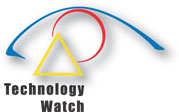
ITU Symposia on ICTs and Climate Change
Since 1970, the production of greenhouse gases
has risen by more than 70 per cent, and this is
having a global effect in warming the planet, causing
changing weather patterns, rising sea-levels, desertification,
shrinking ice cover and other worrying long-term
effects. The UN Intergovernmental Panel on Climate
Change (IPCC) foresees a further rise in average
global temperatures of between 1.4 and 5.8� centigrade
by 2030.
Climate change is a concern for all of humanity
and requires efforts on the part of all sectors
of society, including the information and communication
technologies (ICTs) sector. Although ICTs contribute
only an estimated 2.5 per cent of total greenhouse
gases, this share is set to grow as usage of ICTs
expands globally, growing at a faster rate than
the general economy. ICTs are thus part of the cause
of global warming, but they can also be part of
the solution, for instance through the promotion
of carbon displacement technologies. ICTs are also
vital in monitoring the spread of global warming.
As part of a major new initiative on the overall topic of ICTs and climate change, ITU organised two Symposia on ICTs and Climate Change. The first was held in Kyoto, Japan 15-16 April 2008, hosted by MIC Japan, and the second was held in London, UK, on 17-18 June, hosted by BT. These symposia brought together key specialists in the field, from top decision-makers to engineers, designers, planners, government officials, regulators, standards experts and others.
The Symposia proceedings are available as a webinar in order that remote participants can see and hear presentations from wherever they are in the world.
ITU-T Activities on ICT and Climate Change
| RELATED INFORMATION |
DOCUMENTATION AND REGISTRATION |
|
General Information
London Symposium:
Kyoto Symposium:
ITU and Climate Change
The ITU Radiocommunication Sector (ITU-R) manages the detailed coordination
and recording procedures for space systems and earth stations, which are used
for climate data collection and environmental monitoring. [more…]
ITU's Telecommunication
Standardization Sector (ITU-T) develops
standards that are used, for instance,
in promoting energy efficiency, safe
disposal and recycling of
telecommunication/ICT equipment, and
next-generation networks. [more…]
ITU's Telecommunication Development Sector
(ITU-D)
works on promoting a role for ICTs in the
protection of the environment in its e-Environment
and e-Sustainability programmes.
[more…]
The General Secretariat coordinates
our efforts and for example has been
actively participating in the work of
the UN Chief Executives Board and its
subsidiary bodies on developing a
unified and collaborative UN strategy to
combat climate change, including a
matrix on activities of each agency and
program. [more…]
WSIS ICT
Success Stories highlight some of
the ongoing and successful ICT development
projects in the field of e-Environment taking
place around the world.
[more…]
|
- Invitation letters
-
Reports
- List of Participants
- Programme
- Videos
Resources on ICTs and Climate Change
Our reference site
provides links to external resources:
background papers, additional information,
statistics, and examples, that cover the
positive and negative impact that ICTs have
on the climate.
[more]
ITU Background Paper on ICTs and Climate Change
This report, prepared especially for the two symposia on ICTs and Climate Change, looks at the potential role that information and communication technologies (ICTs) play in climate change, not only in contributing to global warming, but also in monitoring it, mitigating its impact and helping adaptation in some of the most vulnerable parts of the globe. The report also looks at the activities of the three ITU Sectors that are relevant to this topic.
 PDF
PDF
Acknowledgment: We offer our sincere thanks to Marie-Claire Monnet who donated the artwork “Nature is love” designed especially for ITU's Climate Change Symposia.
|
| CLIMATE CHANGE NEWSLOG |
[more...]
|

|



